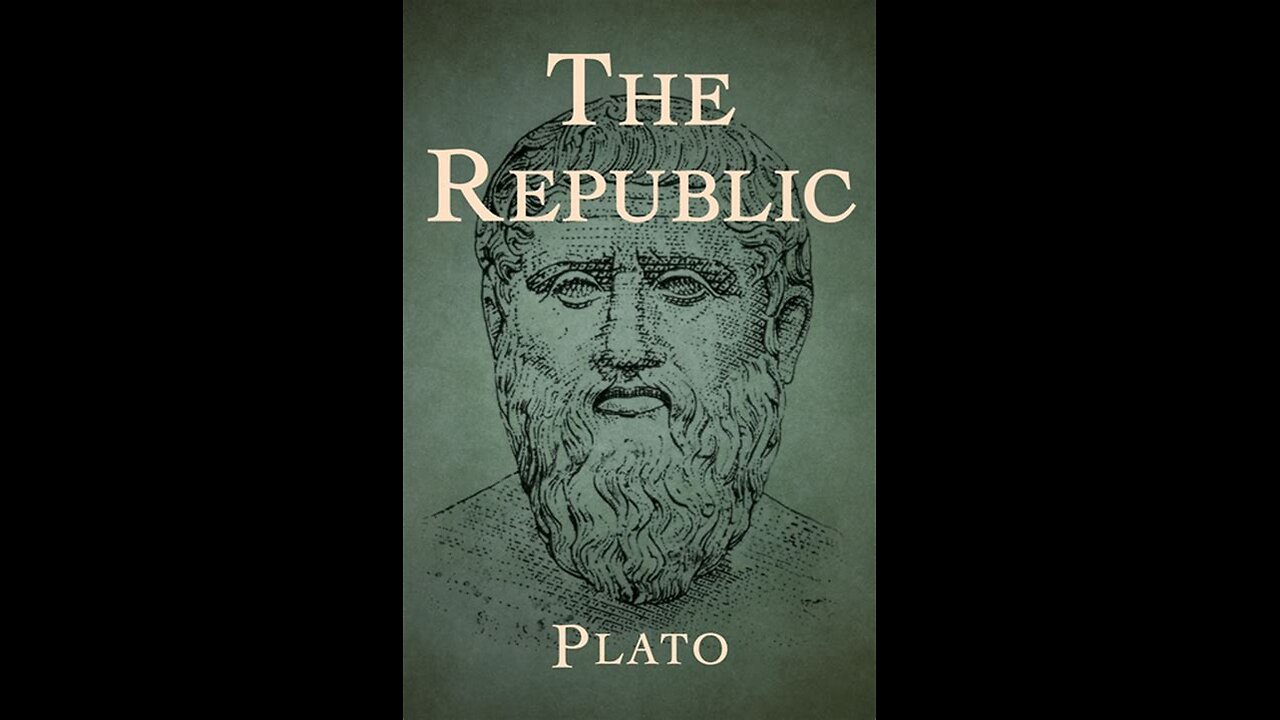Premium Only Content

The Republic by Plato | Summary and Critique
Buy Here: https://amzn.to/4j181l3
"""The Republic"" is a philosophical work by the ancient Greek philosopher Plato, written in approximately 380 BCE. The book is a dialogue between Socrates and several other characters, in which they discuss the nature of justice, morality, and the ideal society.
In the book, Socrates argues that justice is a virtue that benefits individuals and society as a whole, and that the ideal society is one in which individuals are just and virtuous. He outlines his vision of the ideal society, which he calls the ""kallipolis,"" and discusses the nature of different forms of government, including democracy, oligarchy, and tyranny.
One of the most famous ideas presented in ""The Republic"" is the concept of the ""philosopher king,"" in which the rulers of the ideal society are individuals who have the knowledge and wisdom necessary to govern justly and effectively. Socrates argues that only those who have a deep understanding of truth and virtue are capable of leading society in a just and moral way.
Critics have praised ""The Republic"" for its exploration of fundamental questions about human nature and society, and for its lasting influence on Western philosophy and political thought. The book has been studied and debated for centuries, and its ideas continue to influence political and social discourse around the world.
However, some readers have criticized ""The Republic"" for its elitism and its apparent rejection of democracy. Others have argued that Plato's vision of the ideal society is impractical and unrealistic, and that his ideas about the nature of knowledge and truth are overly abstract and difficult to apply in the real world.
Overall, ""The Republic"" remains a seminal work of philosophy and political theory, whose ideas continue to be discussed and debated by scholars and thinkers around the world."
-
 LIVE
LIVE
Joker Effect
1 hour agoThis has to be the best thing to happen to the internet... https://go.mother.land/Joker
318 watching -
 4:22:31
4:22:31
Nerdrotic
7 hours ago $25.88 earnedThunderbolts Group Therapy, James Gunn's Superman LEAKS, PolyGONE | Friday Night Tights 352
108K28 -
 LIVE
LIVE
Pepkilla
2 hours agoEverything is Fine on Ranked ~ DIRECT RTMP STUDIO
76 watching -
 LIVE
LIVE
Lilpaul112
1 hour agoLive On The Island With Proximity chat on =)
119 watching -
 1:23:14
1:23:14
Glenn Greenwald
5 hours agoGlenn Takes Your Questions: Iraq War Lies, Judge Rebukes Trump, Ilham Omar Curses Reporters, & More | System Update #448
55.7K23 -
 29:54
29:54
Afshin Rattansi's Going Underground
13 hours agoJimmy Dore: Russia & Ukraine WON’T Accept Peace Deal, Trump Should Halt Aid & Let EU Bankrupt Itself
11.9K4 -
 40:41
40:41
Sarah Westall
3 hours agoTDS Worldwide, Trump Playing Economic Chicken, Global Power Shifts w/ Andy Schectman
15K12 -
 LIVE
LIVE
Solar Dolphin
3 hours ago $0.44 earnedDolphin Plays: Heroes Hour
86 watching -
 54:03
54:03
BonginoReport
6 hours agoGender Bender Tesla Terrorist RELEASED (Ep. 40) - Nightly Scroll with Hayley 05/02/2025
91.4K63 -
 1:17:17
1:17:17
Kim Iversen
6 hours agoChina BLAMES USA For Covid Leak | Are Ports Really EMPTY Since Trump's Tariffs?
81.4K117